Despite the pandemic, the industry is big and getting bigger, partly driven by entrepreneurs with an appreciation of Maine’s great outdoors and who aren’t afraid to go off the beaten path.
Get Instant Access to This Article
Subscribe to Mainebiz and get immediate access to all of our subscriber-only content and much more.
- Critical Maine business news updated daily.
- Immediate access to all subscriber-only content on our website.
- Bi-weekly print or digital editions of our award-winning publication.
- Special bonus issues like the Mainebiz Book of Lists.
- Exclusive ticket prize draws for our in-person events.
[bypass-paywall-buynow-link link_text="Click here to purchase a paywall bypass link for this article"].
Three weeks into a delayed summer season that should have started on Mother’s Day weekend, Sandy Pines Campground in Kennebunkport is uncharacteristically quiet on a June Friday morning.
“This was going to be a banner year,” says Tim Harrington, a partner in the nine-hotel Kennebunkport Resort Collection who owns and runs the 60-acre campsite with Deb Lennon. They paid $3 million for the former Salty Acres Campground four years ago and another $5 million on renovations.
Today’s 60-acre site is a world apart from its former rustic self with the addition of “glamping” tents, cottages and quirky quarters marketed as unique retreats. They include two covered Conestoga wagons, a vintage Airstream Zephyr camper and a domed plastic bubble called “Stargazer” that’s new this year, set to go up later that day in a section the owners call “Glampland.”
Two more vintage campers and a Volkswagen bus will be rolled out this summer, on grounds that can accommodate up to 800 visitors at full capacity, including spots for tents and RVs.
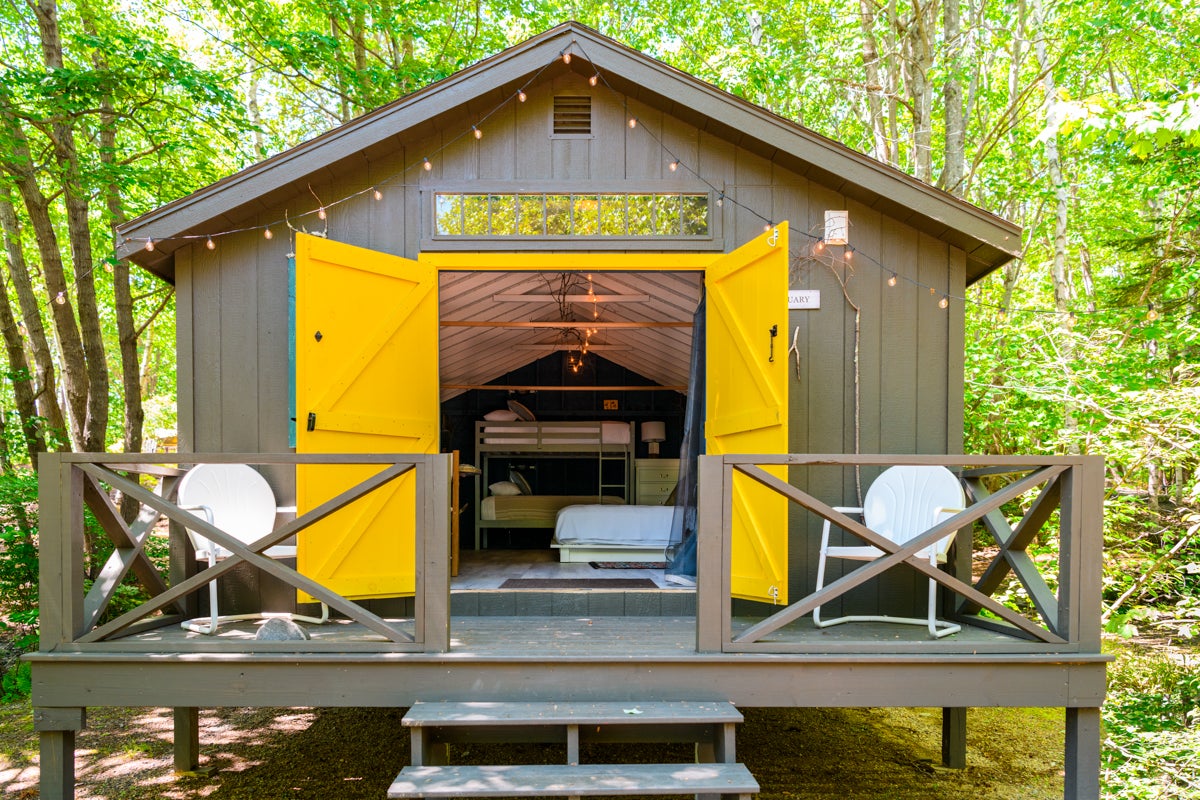
“Each year we add more things,” says Harrington, who describes his business outlook as somewhere between terrified to cautiously optimistic. “The short-term is scary for this season, but if you can make it, the long term is fantastic, because people have bought campers and recreational vehicles, so the 10-year outlook for camping is boom, boom.
"Once people get out here, and get into these gorgeous places, they want to come back. We do an amazing amount of repeat business, and we’re the long-term beneficiaries of that for sure.”
Harrington and Lennon are among a growing crop of entrepreneurs in Maine’s $3 billion outdoor recreation industry, which is poised for further growth as COVID-19 sparks surging interest in camping, fishing and other healthy outdoor activities with natural social-distancing.
Another is Rheanna Sinnett, a U.S. Navy reservist who rents out two floating houseboats on Rangeley Lake through a business she started in 2018 called Just Add Water Floating Camps. She rents out a restored 1968 Thunderbird Drift-R-Cruz called Nomad, and the custom-built Roam she added in July 2019.
The pandemic also meant a later start to her third season, after getting back from being stationed in Naples, Italy, during the lockdown there, but she’s optimistic as bookings come in with a lot of Mainers renting in June.
“Without wanting to gloat, I kind of have a COVID-resistant business, assuming people are able to travel here,” she says.
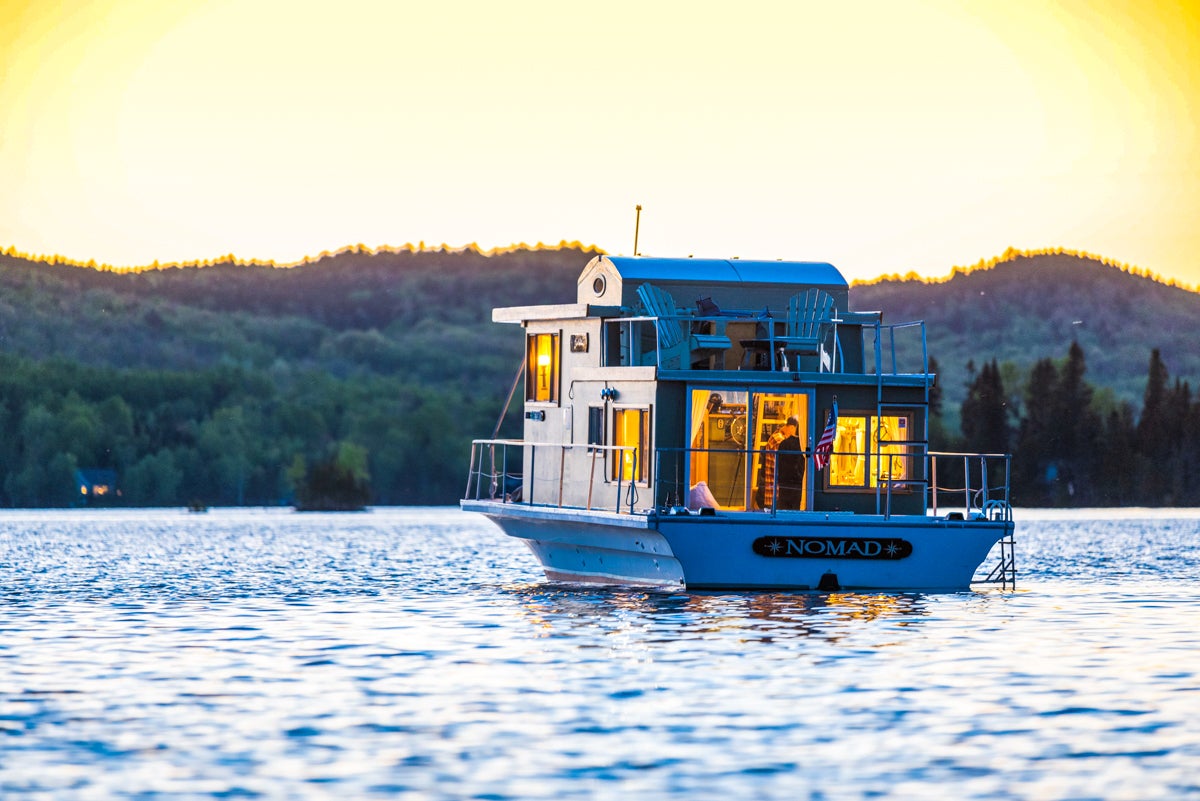
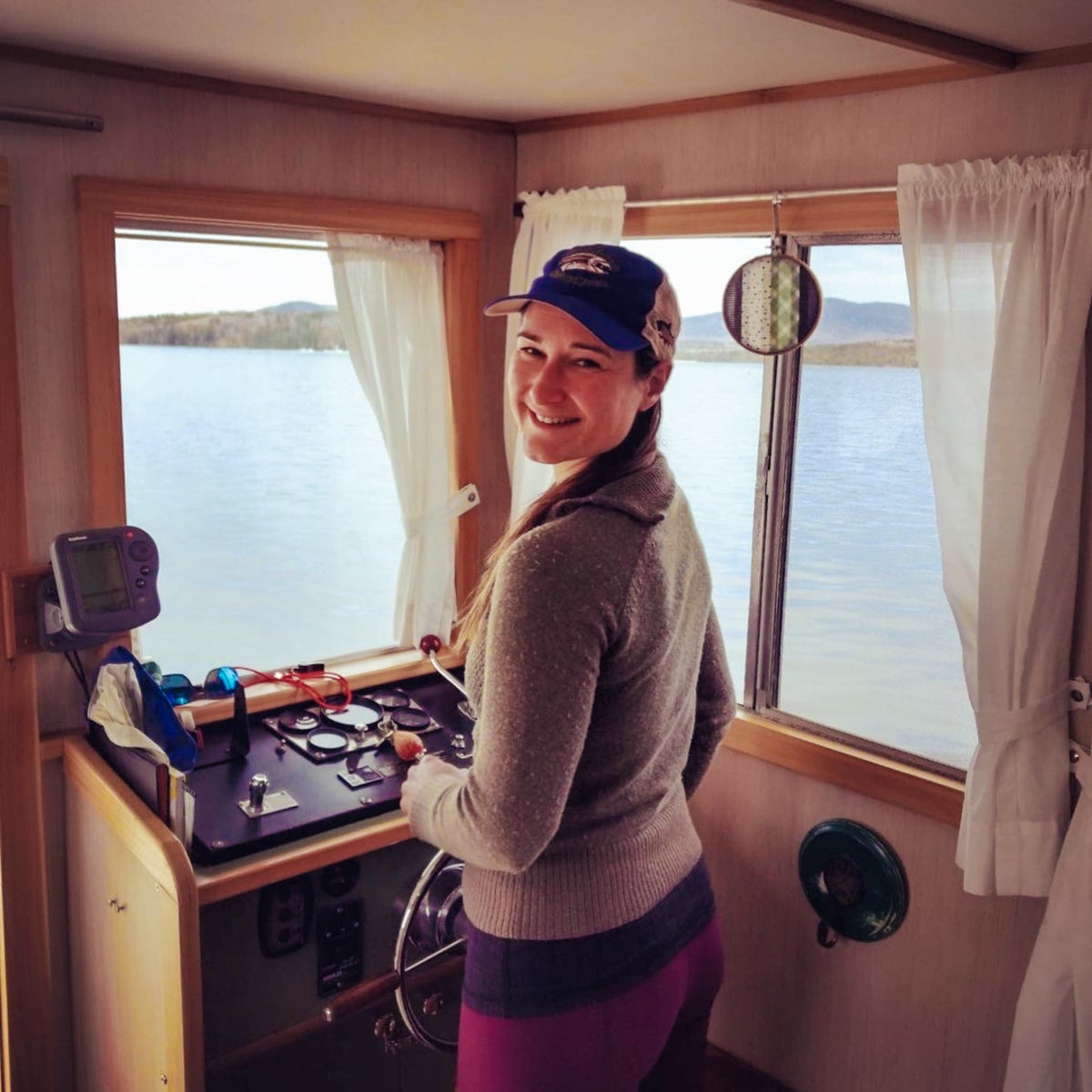
Other industry newcomers are active in fly fishing and camping-related activities as they cope with the challenges and opportunities presented by the pandemic and make plans for the longer term.
‘Culture of innovation’
The reopening of national parks and other parts of the country are sparking increased enthusiasm in healthy outdoor activities and summer road trips, as reflected in robust consumer spending.
Data released by the NPD Group, a Port Washington, N.Y.-based market research company, show that camping equipment sales reached a turning point in April and soared in the last two weeks of the month. In the two weeks ending May 2, sales for camping basics shot up, led by a 119% jump in camp sets and a 30% rise in recreation tents. The same market research firm found that adult leisure bike sales jumped by 121% in March over last year, as well as sales increases for U.S. travel books, roadmaps and outdoor toys.
Why are so many people, including first-time campers, going gaga for the great outdoors? Experts point to a combination of factors from pent-up demand after months of coronavirus shutdowns and the work-from-home lifestyle, historically low gas prices and concerns about getting on an airplane.
“There’s a sweeping trend at play here,” said Matt Powell, NPD’s sports industry advisor, in a May 28 press release. “From the backyard to the campground, consumers are looking at refuge in the outdoors.”
Jenny Kordick, executive director of the nonprofit alliance Maine Outdoor Brands, says the organization has grown to 100 product, service and retail brands within three years of launching.
“So many companies connected to the outdoors are building on the strong outdoor heritage we have in Maine, but blending it with this culture of innovation as well,” She says. Through a new online campaign, the group is promoting camping and other outdoor activities with the message: “Adventure close to home this summer and discover more of Maine.”
While it remains to be seen whether staycations will be enough to save Vacationland and its $7 billion tourism industry, experts agree that Maine’s innovation-fueled outdoor brand cachet is stronger than ever.
No. 3 state for outdoor recreation
Even before the pandemic, outdoor recreation was big in Maine, as reflected in a recent report by the U.S. Department of Commerce’s Bureau of Economic Analysis. It shows that the $3 billion sector makes up 4.8% of the state’s economy, more than double the 2.2% national average.
That puts Maine in the No. 3 spot after Hawaii and Montana for a sector that supports 40,720 jobs in the state or 6.4% of Maine’s total and provides close to $1.4 billion in wages and earnings. The vast majority of outdoor dollars come from private industry, which generated $2.8 billion in 2017.
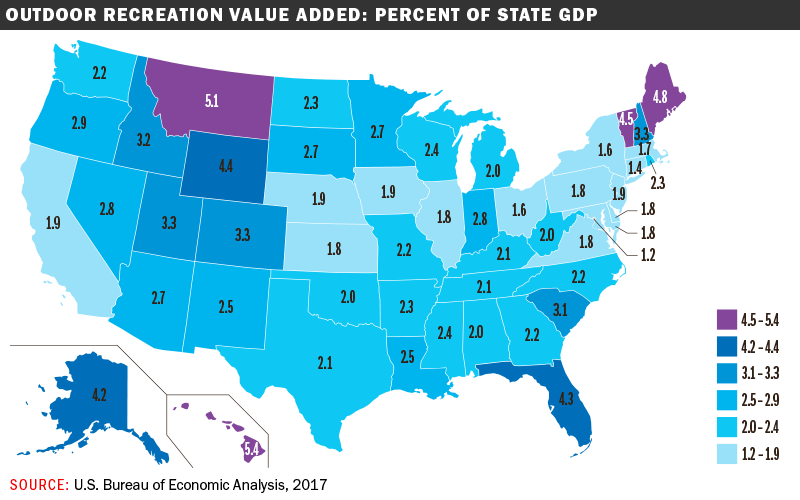
Maine is also one of only 17 states with a government department focused on outdoor recreation. Maine’s Office of Outdoor Recreation was created by Gov. Janet Mills to expand the sector and help build the state’s outdoorsy image.
“The pandemic has accelerated the work in some ways as connecting businesses to resources has been critical,” says Director Carolann Ouellette.
She considers the “Maine” cachet to be incredibly valuable to outdoor pursuits owing in part to a rich heritage of well-respected brands like L.L.Bean Inc., Registered Maine Guides, Old Town and Shaw & Tenney.
“The attributes that embody Maine are so aligned with outdoor recreation and the people in the industry — independent, resourceful, creative, innovative, one-of-a-kind and resilient,” Ouellette says.
‘Collaborative space’
Kordick, Maine Outdoor Brands’s first-ever executive director, says there is plenty of room for more members — and more market entrants.
“We have the space to grow, and as more companies are grounded here and get established here, we also are creating this amazing network of resources and knowledge that is only going to grow and strengthen over time,” she says. “It is a very collaborative space.”
In the latest example of that, two Portland startups — Back40 and the Trail Van — have joined forces to launch Summer Camp Kits, a curated collection of gear and backyard activities for kids who would otherwise miss out on real summer camp this year. Three packages are available, for a weekend ($189), one week ($329) and two-week session ($489), with three activity options to choose from: backyard ecology, nature art and a campfire kit with stories, s’mores fixings and a guide to campfire games.
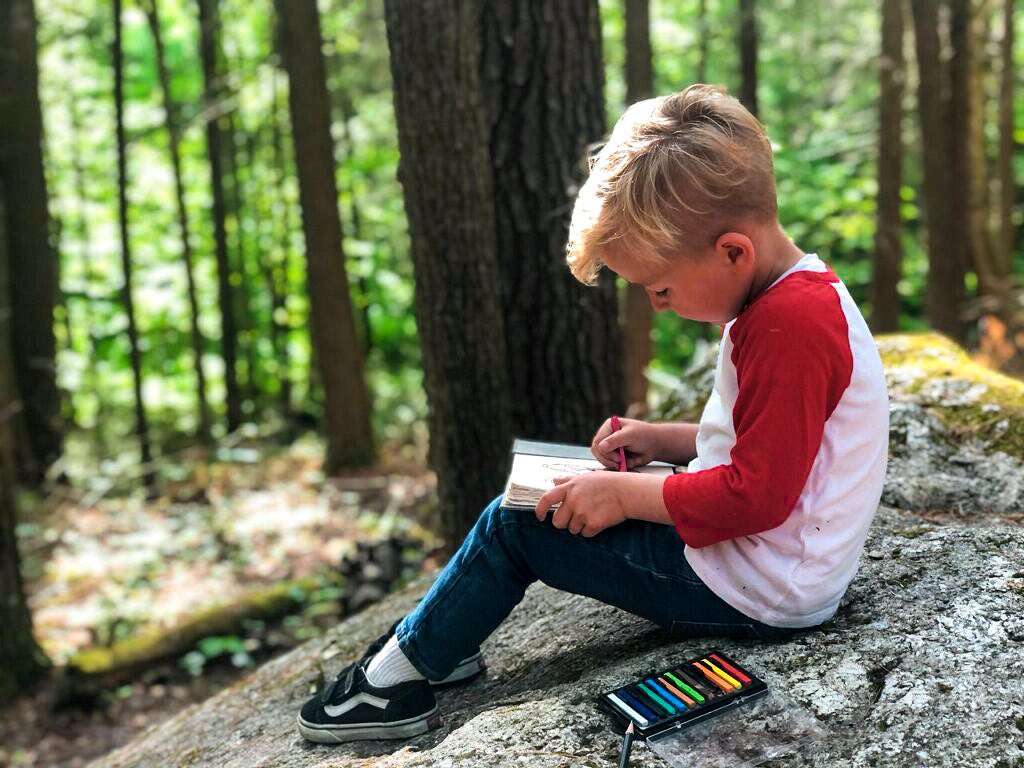
The idea originated with Terra Fletcher, a former camp counselor and owner of The Trail Van, a shuttle service she started last October to bring Portland residents into nature all year long. While that business is on hold because of the pandemic, she connected with Back40 to launch the summer camp kits.
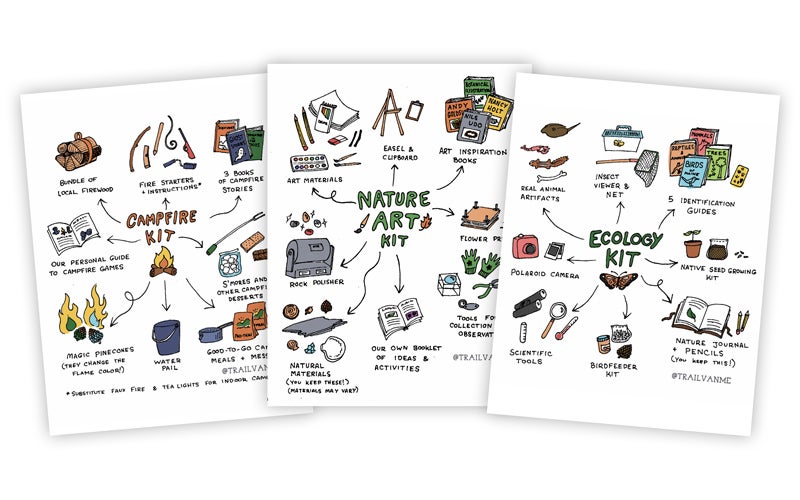
“It absolutely speaks to our core mission, to get people outside and get people thinking about nature in a different way,” she says. With a loan she got via Coastal Enterprises Inc., Fletcher eventually hopes to buy a 15-passenger van for the planned livery service, possibly also in conjunction with the home-camp kits.
“With any luck, hopefully things with the coronavirus will settle down and we’ll be able to give people rides in the new van in August,” she says.
Back40, which rents tents and other gear using an online platform, is also planning for the longer term as it does a brisk business in gear rentals during COVID-19 and embarks on the home-camp collaboration.
“We find ourselves still running the same business but finding some new opportunities as well,” says Back40 co-founder Henry Gilbert.
Plans for next year include building a recently launched membership program offering unlimited rentals for a year, and finding a space in Portland to serve as its headquarters and inventory showroom.
Fishing on the fly
Fly fishing startups are also popping up amid the sport’s growing popularity.
One is Maine Fly Co. in North Yarmouth, started by Jeff Davis in his basement last year after many years in business development.
Davis is a relative newcomer to the activity, which he got into only after sorting through his dad’s affairs after his death and discovering his love of fly fishing that struck an immediate chord.
“From that day, there is nothing I love more,” says Davis, a self-taught rod builder with one full-time and one part-time employee working from home.
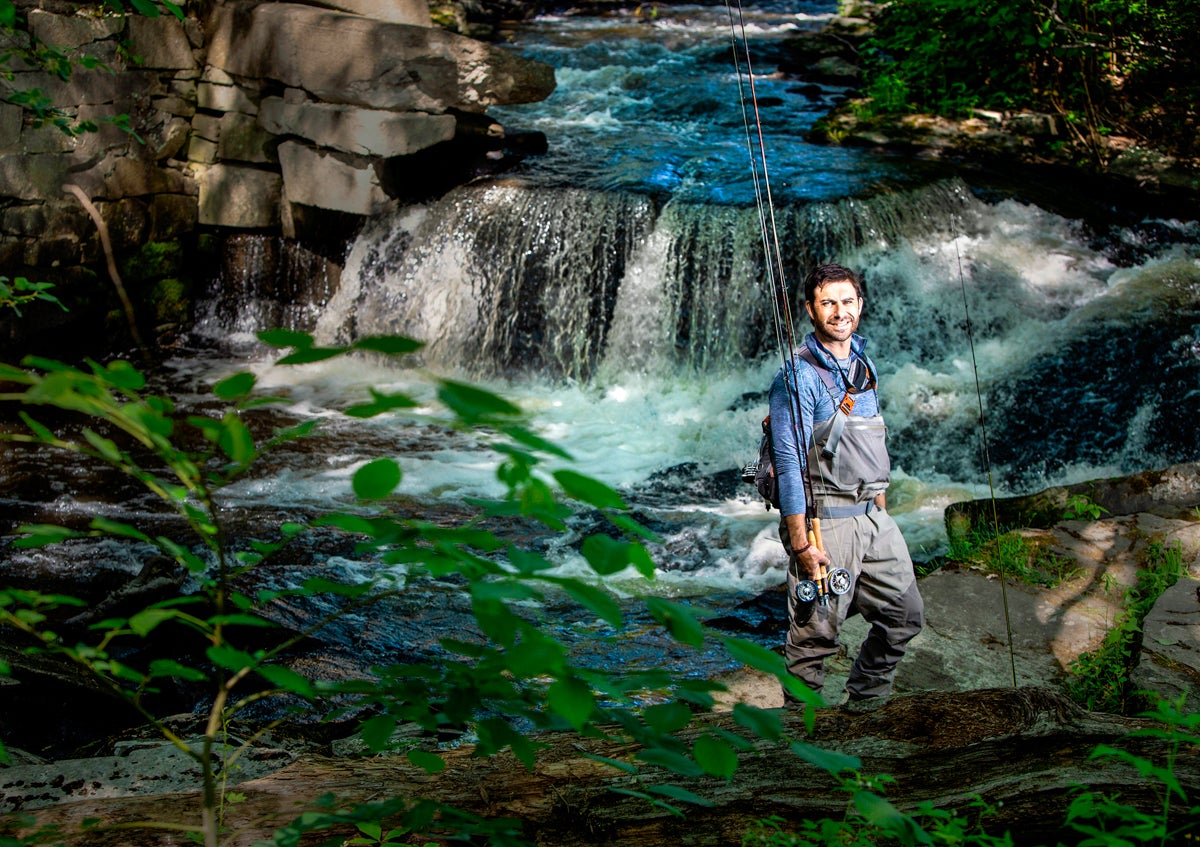
They make small-batch rods with names like Little River, the Kennebec and the Penobscot, that sell for about $269 to $349 each, and custom-made ones that range from $369 to $399. Maine orders account for 23% of the business, which has a nationwide following owing in part to a growing social media fan base.
Davis says that sales in February, March and April were about seven times higher than last year, and they’ve been so busy they’ve had to delay three new design launches that had been planned for this year. They expect to make 300 to 400 rods this year and bump that up to 700 in 2021 as Davis expands in-state manufacturing.
“Scaling came quicker than we anticipated,” Davis says as he plans to look into putting up a barn — that he may crowdfund — on his property to house a centralized workshop that customers can visit. “That’s my vision.”
When he’s not building rods, the father of three sons spends much of his free time fishing, which he calls his therapy.
“I come back revived and clear and excited for the next time out,” he says. “It never gets old.”
Cape Elizabeth resident Bri Dostie, who has been fly fishing since childhood, has also turned her passion into a business. Last year she started a social enterprise called Confluence Collective to promote more inclusive and accessible outdoor spaces through educational fishing stays in Montana, Maine, Colorado, New York’s Catskill Mountains and Alaska, to experience fly fishing in the local context, though the programs are temporarily suspended because of COVID-19.
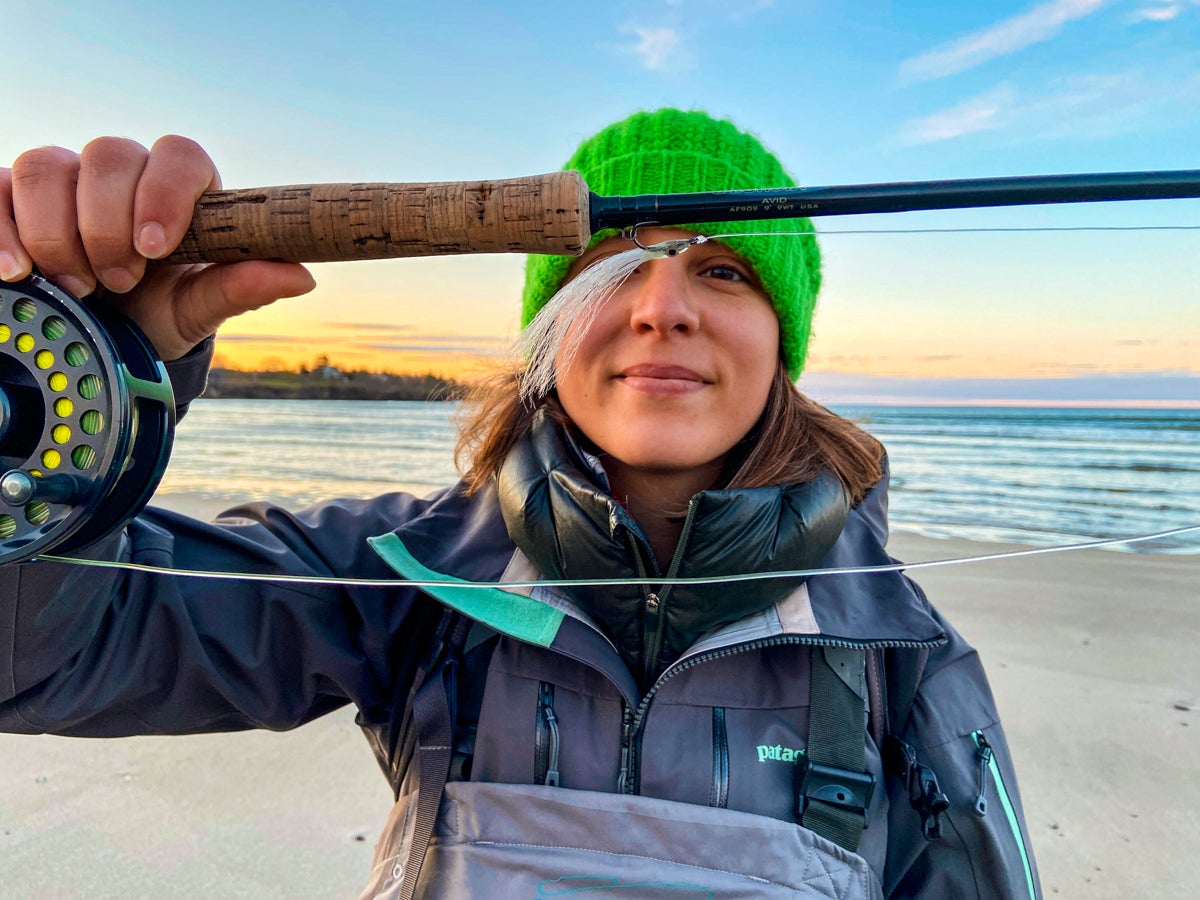
She also works as a consultant on the same topic to fishing industry brands, outdoor recreation companies and local ad agencies and community groups.
She sees her job as a storytelling one, changing the narrative of fly fishing as an insular, white male-dominated world to one of inclusiveness for all.
Alluding to the Oscar-winning 1992 film “A River Runs Through It,” she says, “Not just Brad Pitt can throw a fly,” and describes her mission this way: “My job is to help make sure the image, communication and story we tell is one where any person can see themselves represented, welcome, heard and supported, and that requires a disruption.”
